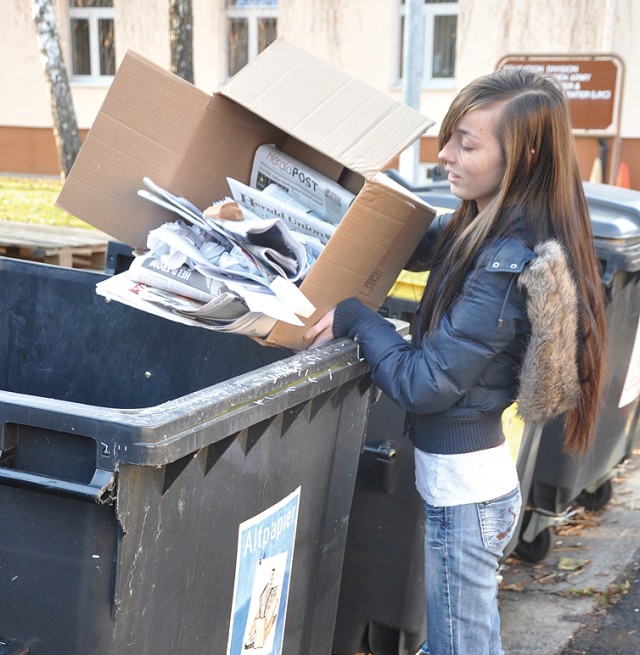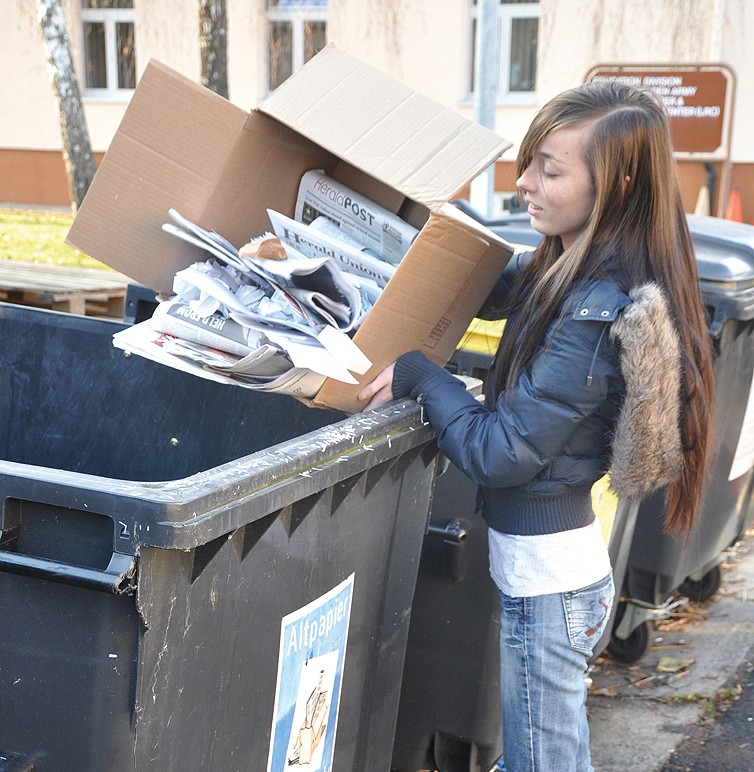WIESBADEN, Germany - U.S. Army Garrison Wiesbaden spends about $2 million a year for refuse disposal, at least a tenth of which could be saved if everyone did his or her part to recycle, according to post officials.
"I think we have the potential to save 10-15 percent of that if more people recycled properly," said Peter Zeisberger solid waste manager for the Directorate of Public Works' Environmental Division, explaining that a recent survey showed that while many people take the time to separate, those who don't follow the rules sabotage the efforts of the majority.
"Among the problems we've seen, especially in the housing areas, is refuse not being properly sorted. We'll find cardboard boxes in the paper recycling containers assuming inside would be paper, but instead find clothing, residual waste and packaging," he said. "This all costs extra money to separate. When it's an ongoing issue, we have to do an extra pickup with an extra fee involved.
"In other cases," Zeisberger added, "we'll find moving boxes filled with paper but thrown where the residual waste is located. In many cases we've seen where people have tried to properly recycle, but boxes were not crushed and folded."
When boxes are thrown in wholesale without being flattened, the opportunity for fellow residents to recycle is diminished, as uncompressed boxes quickly fill the paper recycling containers.
Another issue in some housing areas is refuse left in front of residual waste and recycling containers. "We've seen incidents where trash is placed in front of containers, even when they were empty," said Zeisberger. "We assume it must be small children taking out the trash who are not sure how to properly recycle or incapable of reaching the containers."
While children are vitally important in spreading the recycling message, he said, explaining that local schools such as Wiesbaden Middle School have active recycling programs, parents must also help by ensuring their children fully understand how to properly separate.
Servicemembers who may have gotten out of the recycling habit while serving in Iraq and on other lengthy deployments, should be encouraged to help the Army and the garrison to save money and resources by separating their refuse.
"There's a high potential to save money - particularly through paper and packaging recycling," said Zeisberger. "We've seen through our Recycling Yard how quickly we can save just through our bulk trash recycling program."
Getting people who live in the barracks to recycle glass bottles - many of which may be worth money through refunds - is also a goal of the Separate Or Recycle Trash program managers.
In office settings people should also play a role in recycling, Zeisberger said, recognizing that it is not always easy to get custodial workers into the recycling habit. "We have people who are doing the best they can as far as recycling, and then custodial staff members mix the recycled materials back in with the normal trash."
When that happens, office workers should report it to the contracting officer's representative for corrective action. Better labeling trash recycling receptacles and increasing the size of some containers will further encourage greater participation, Zeisberger said. "I'd like to see it where if we're able to save money through recycling perhaps we could buy some kind of bins for pre-sorting refuse in the housing areas and offices."


Social Sharing